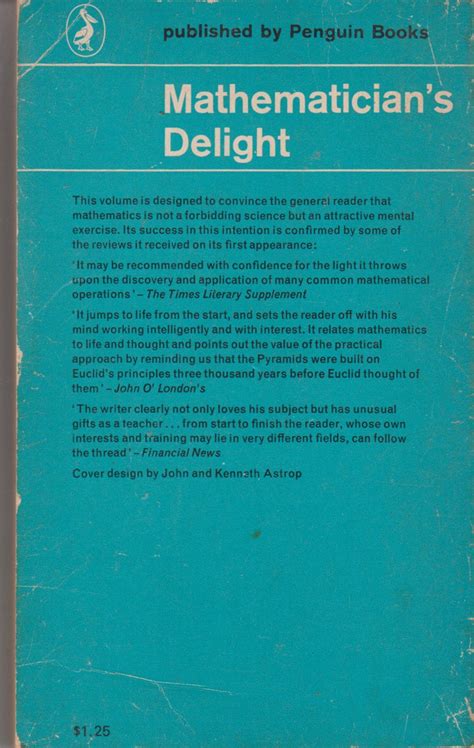Top 8 Quotes & Sayings by W. W. Sawyer
Explore popular quotes and sayings by a mathematician W. W. Sawyer.
Last updated on April 14, 2025.
When we find ourselves unable to reason (as one often does when presented with, say, a problem in algebra) it is because our imagination is not touched. One can begin to reason only when a clear picture has been formed in the imagination. Bad teaching is teaching which presents an endless procession of meaningless signs, words and rules, and fails to arouse the imagination.
Most remarks made by children consist of correct ideas very badly expressed. A good teacher will be very wary of saying 'No, that's wrong.' Rather, he will try to discover the correct idea behind the inadequate expression. This is one of the most important principles in the whole of the art of teaching.























